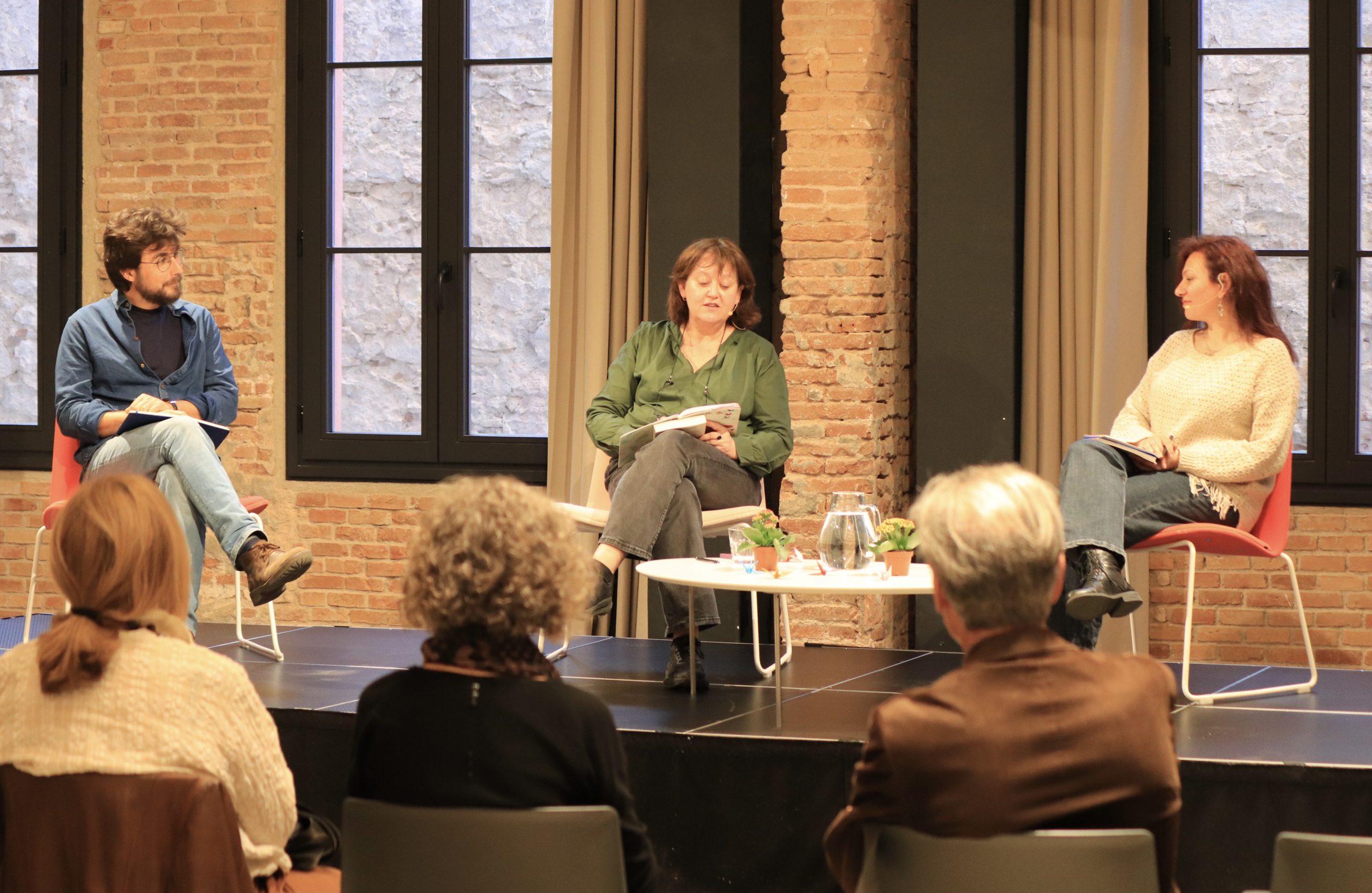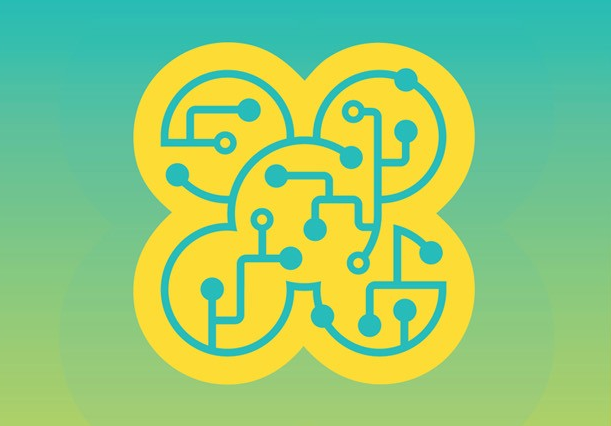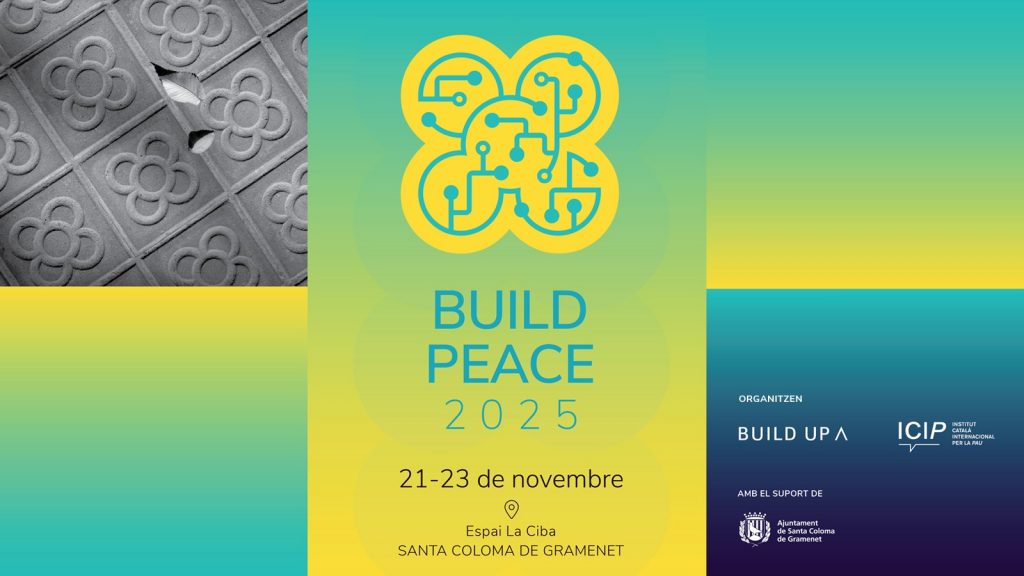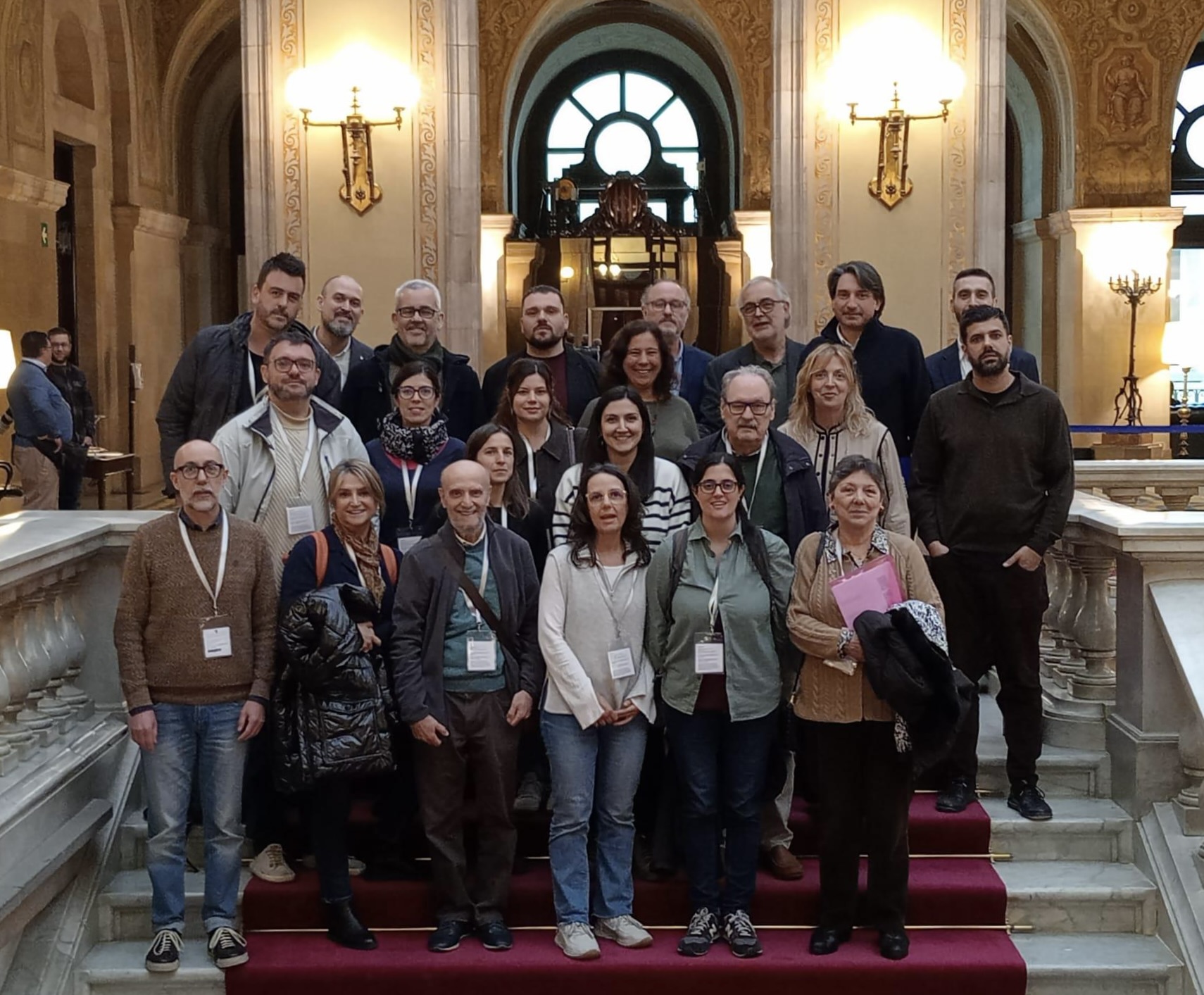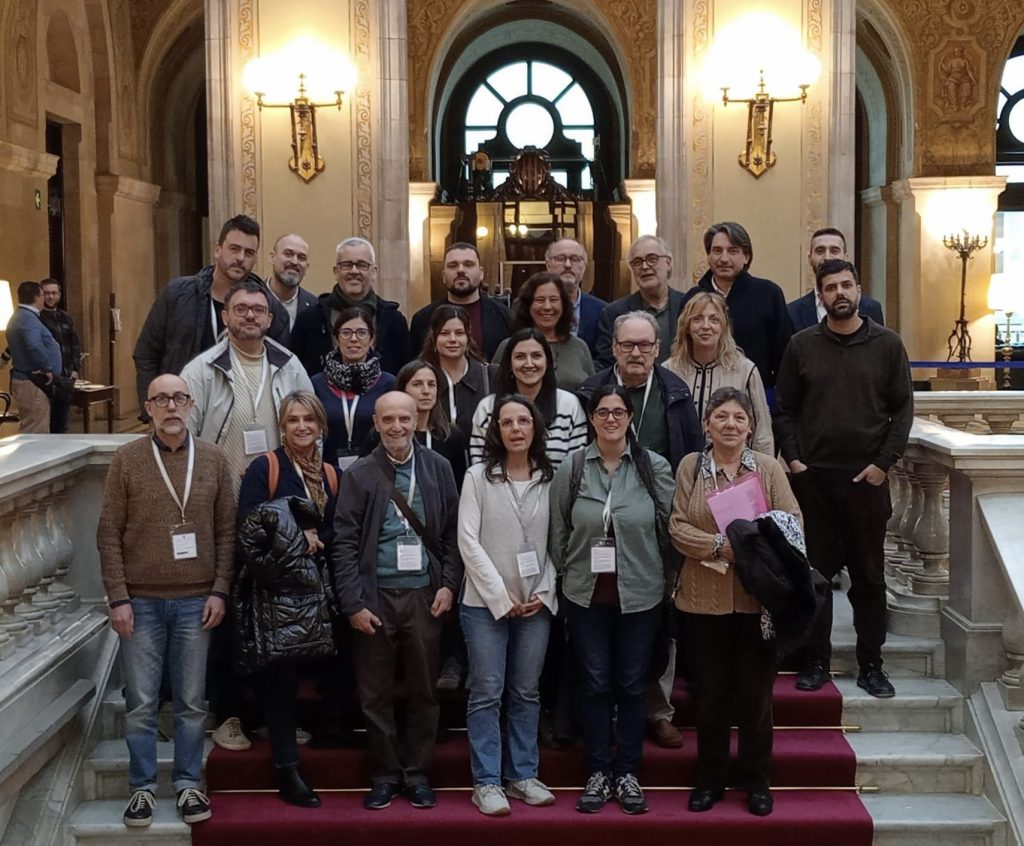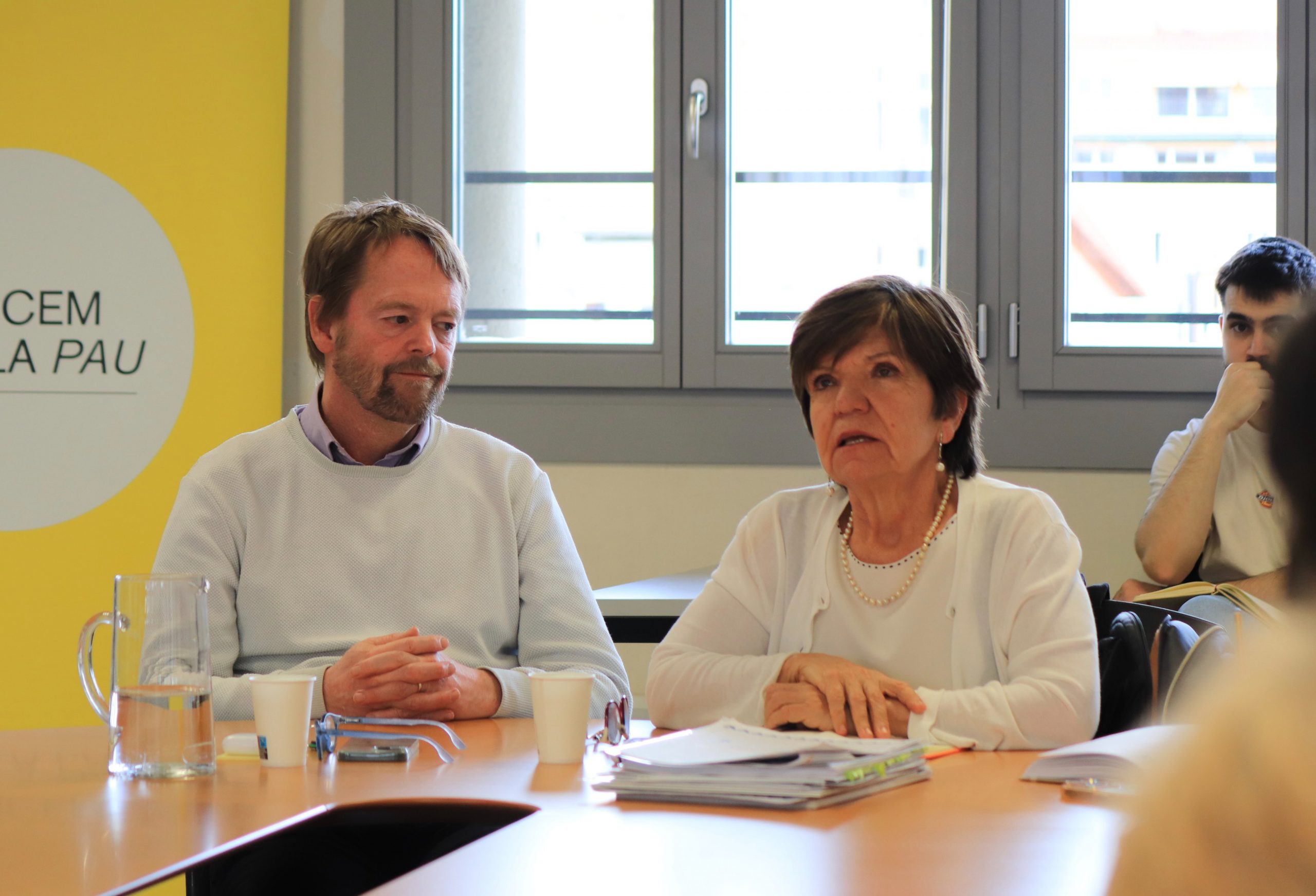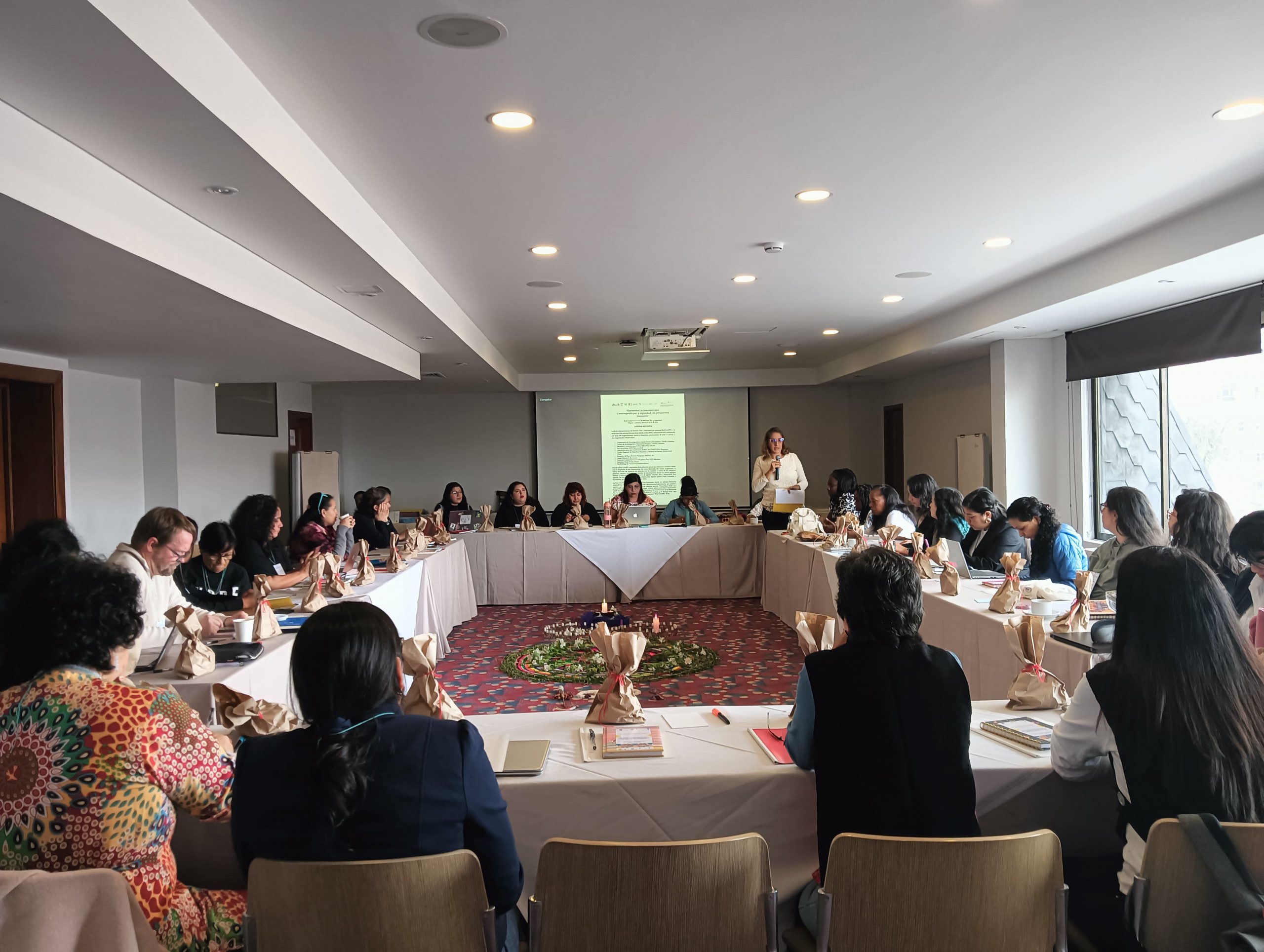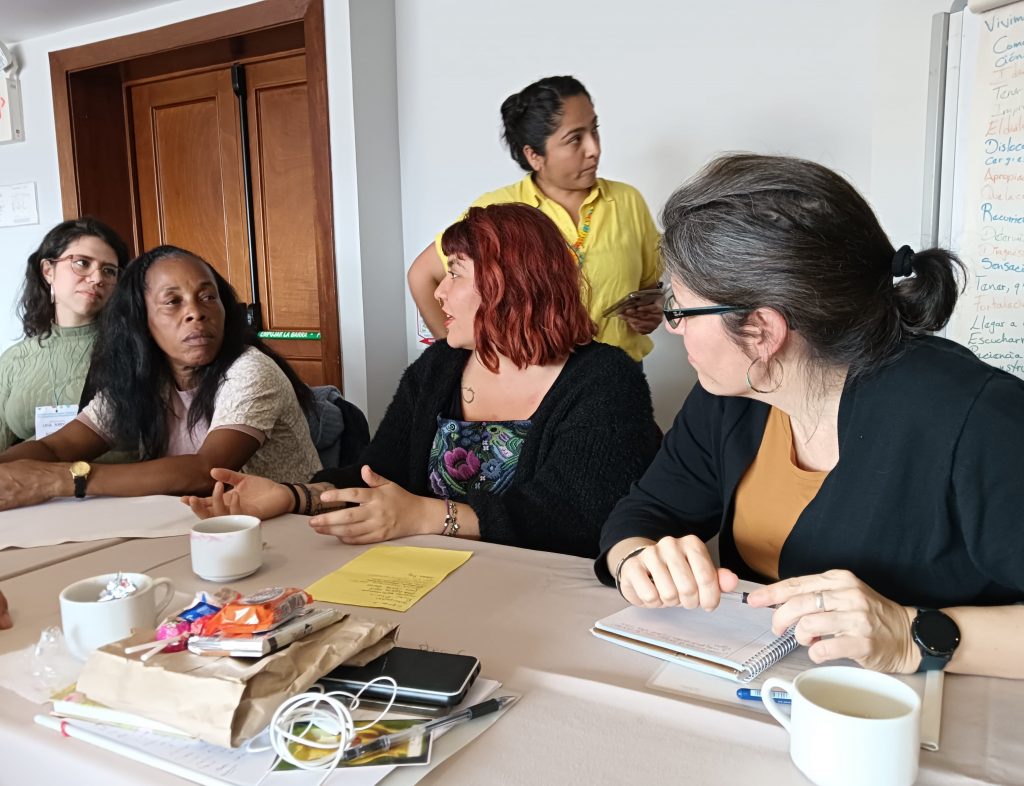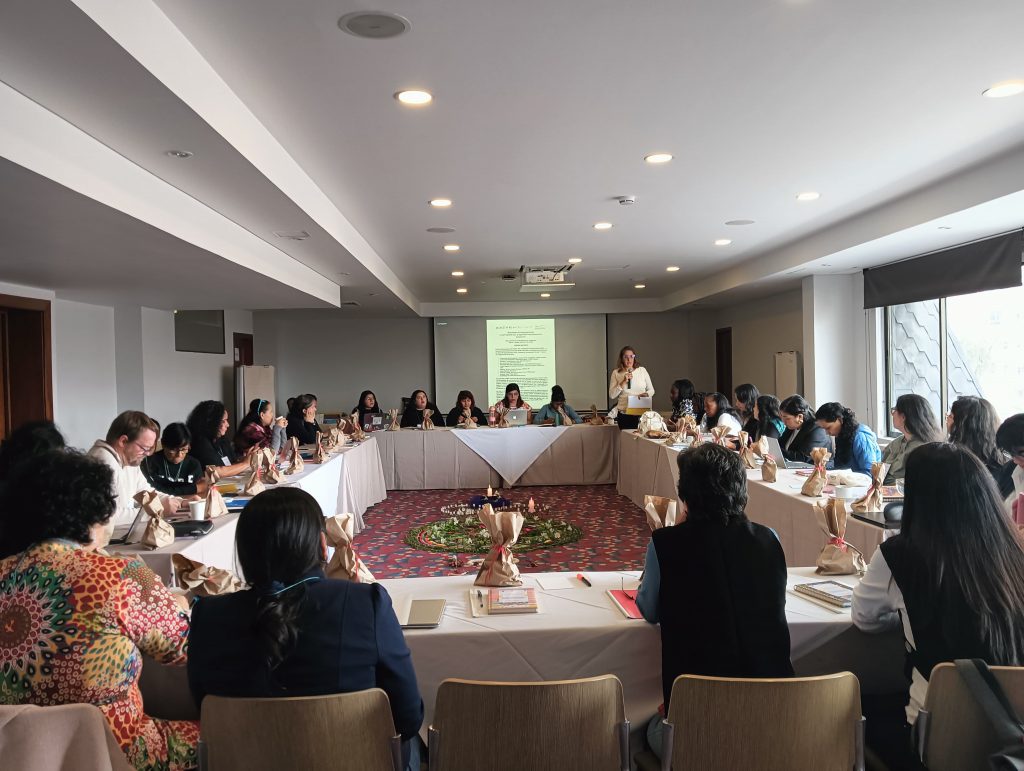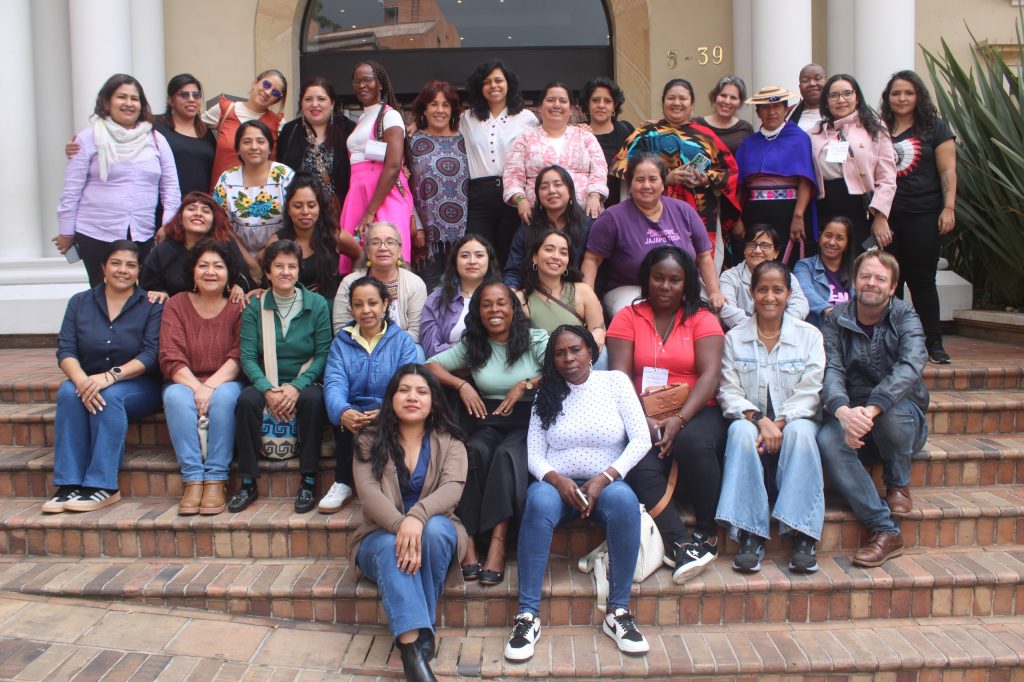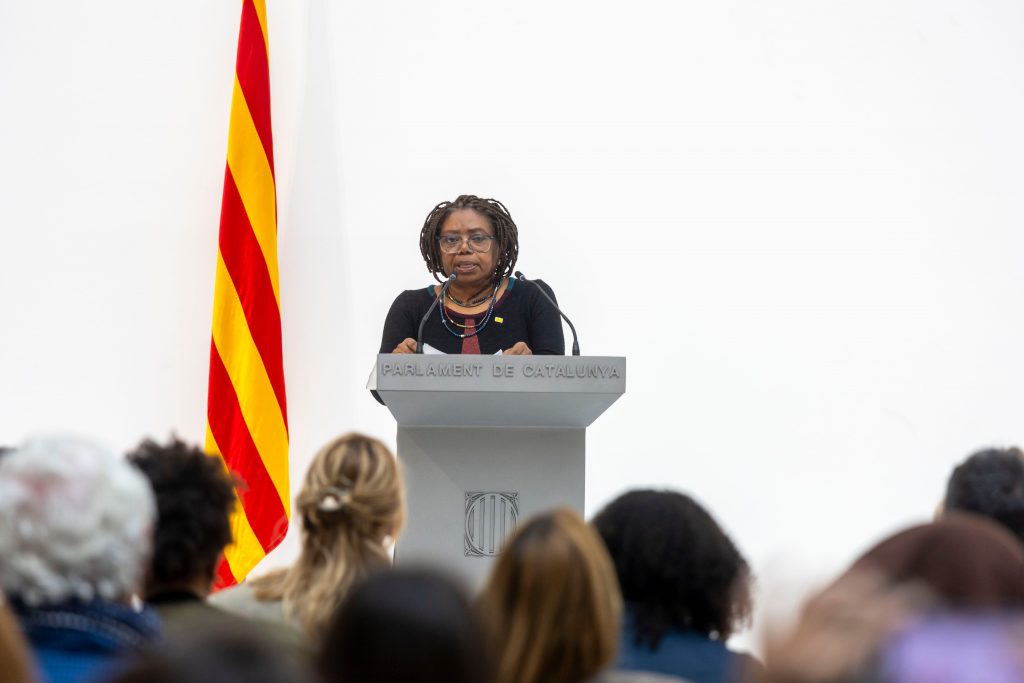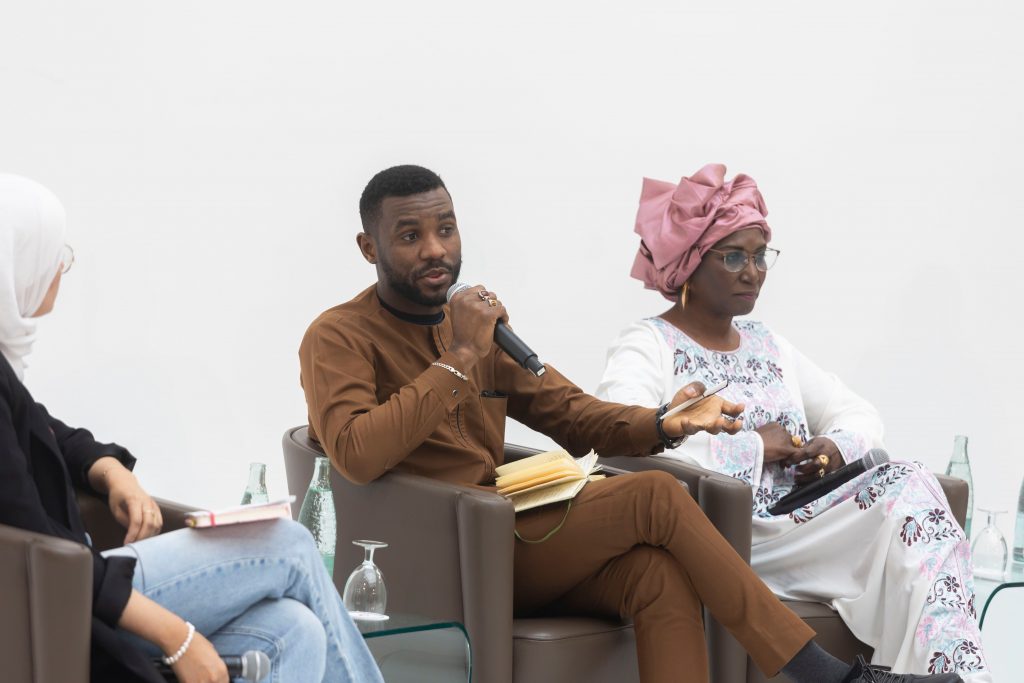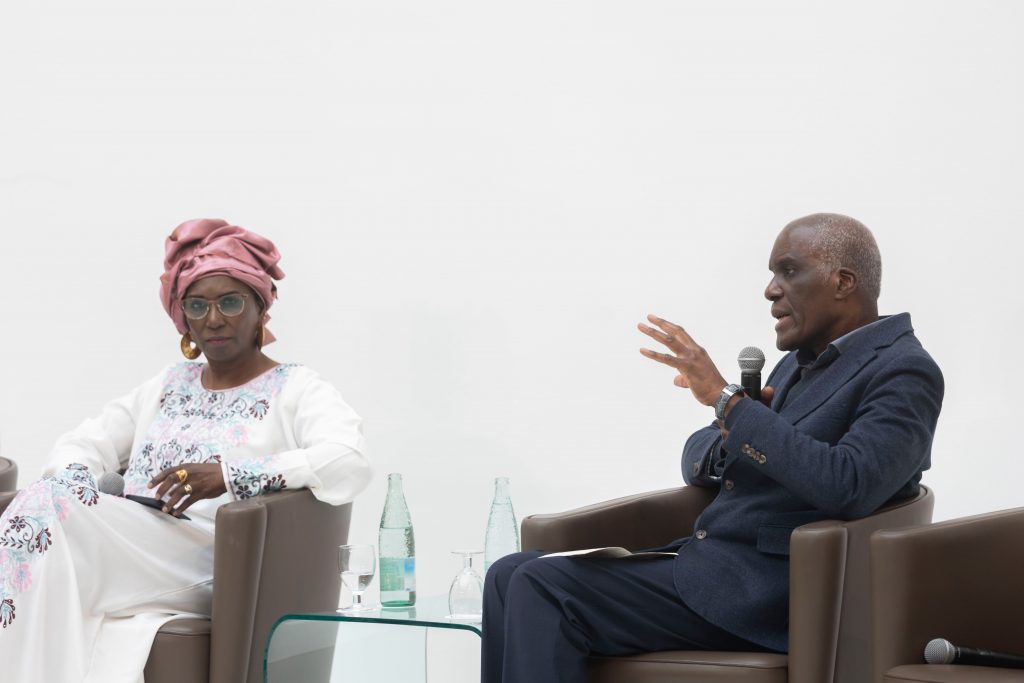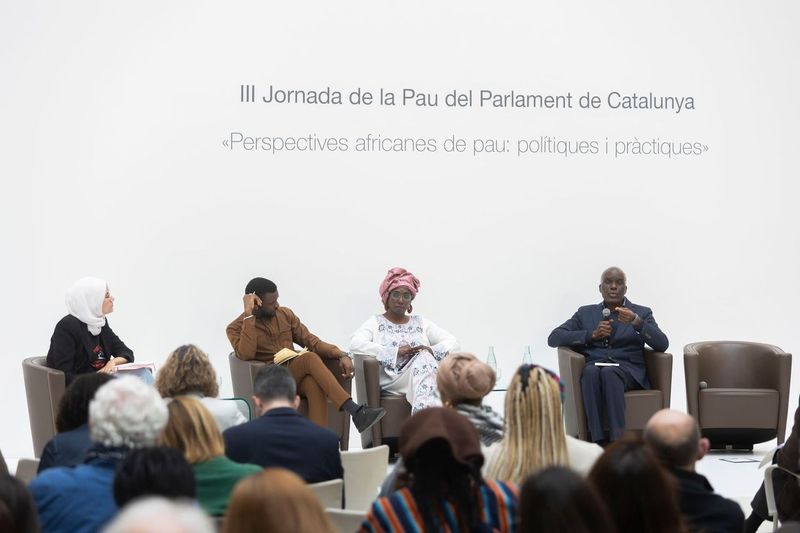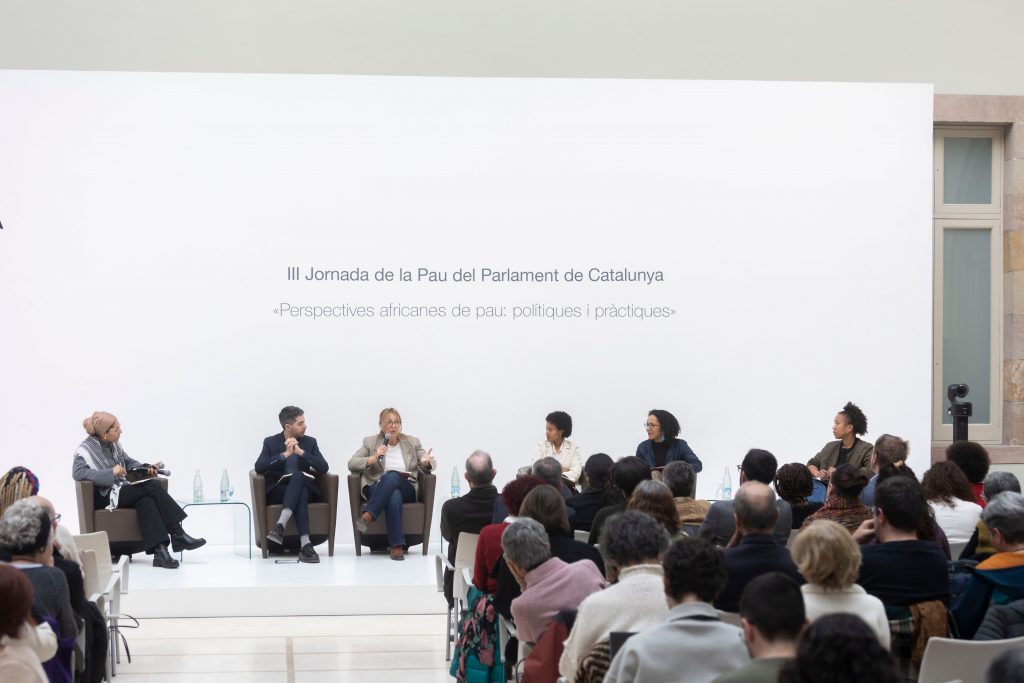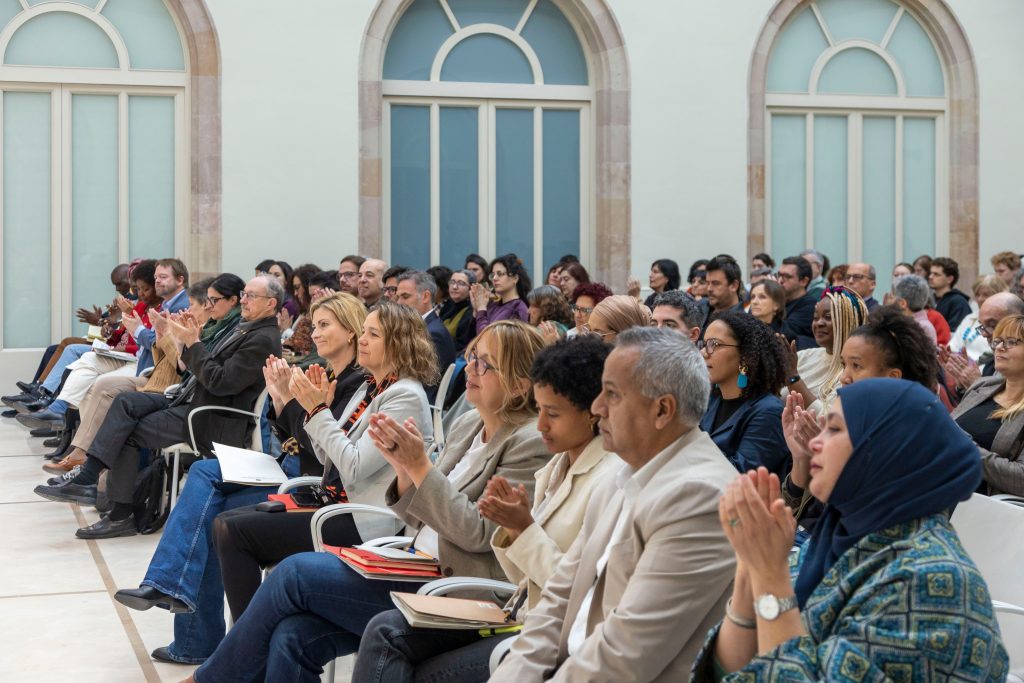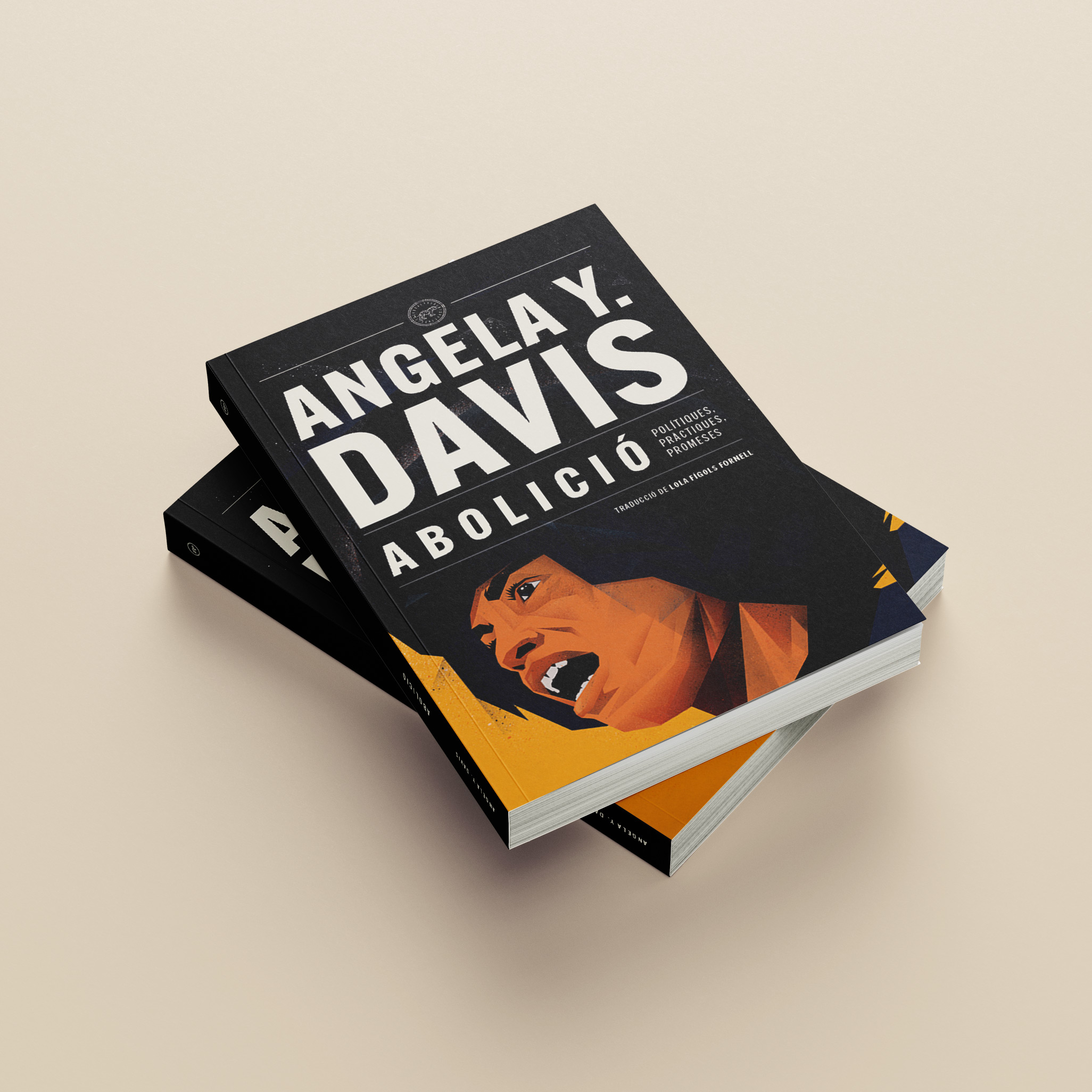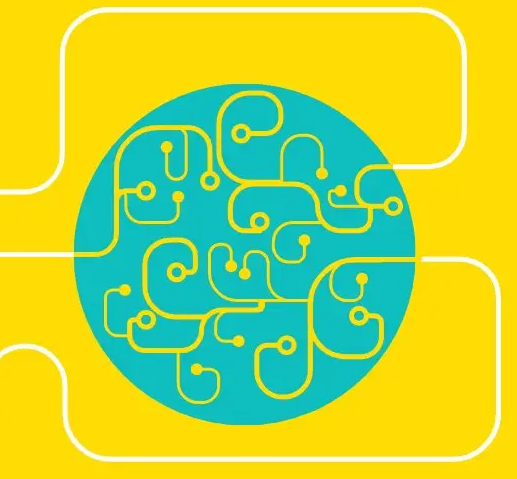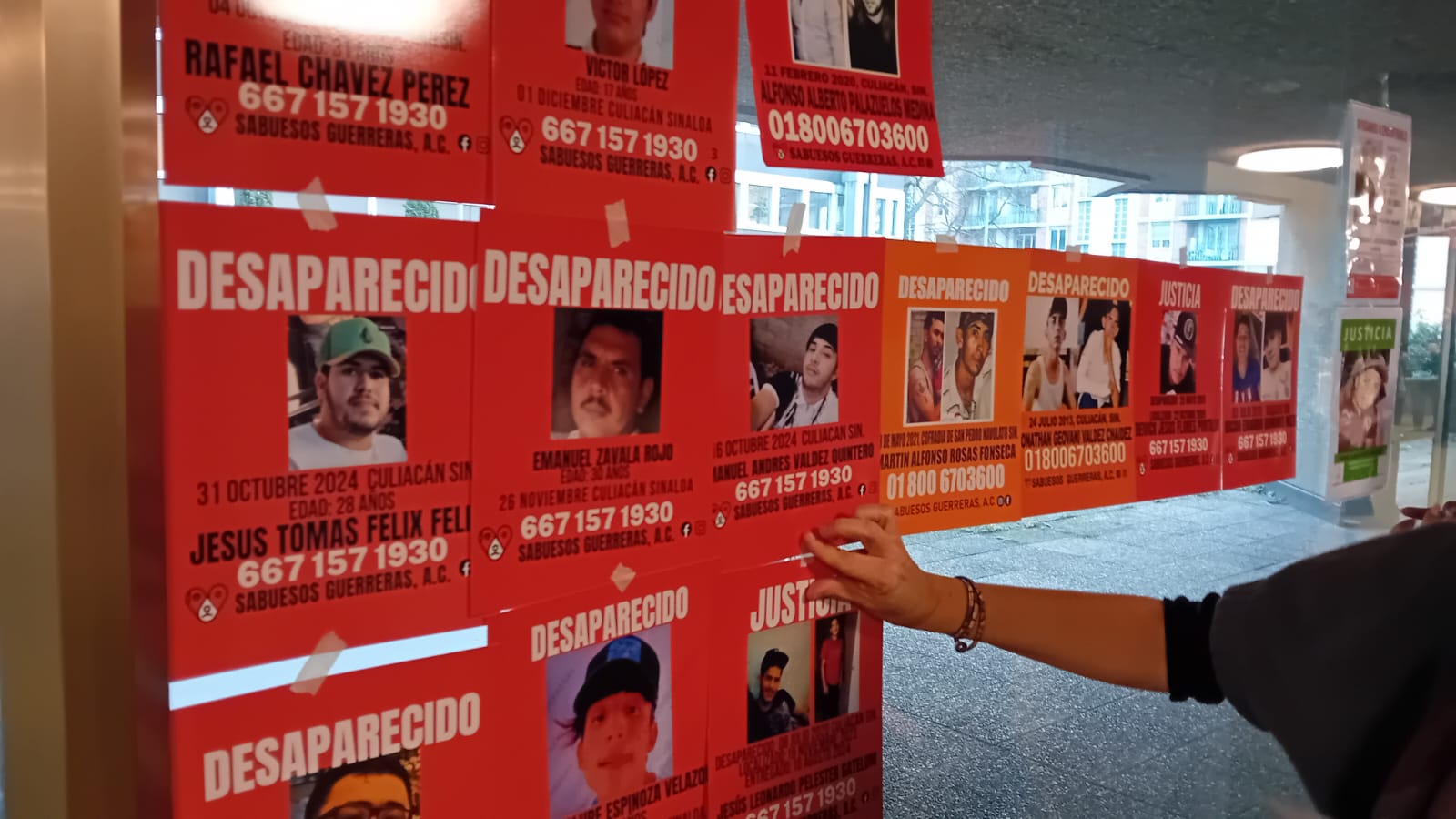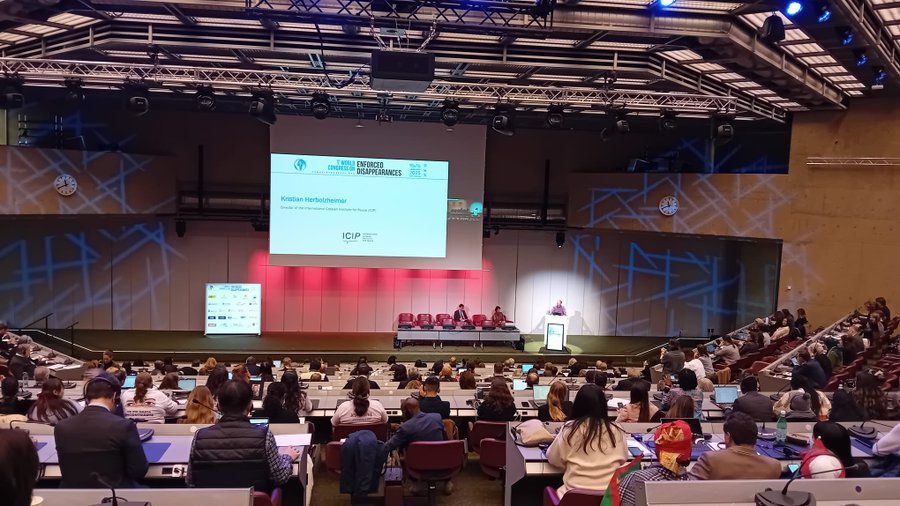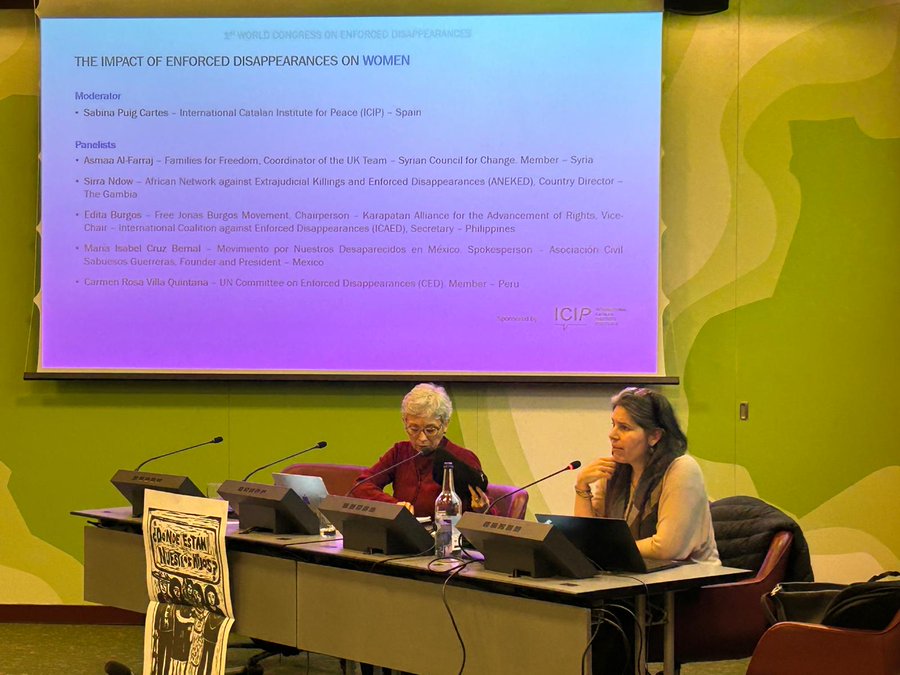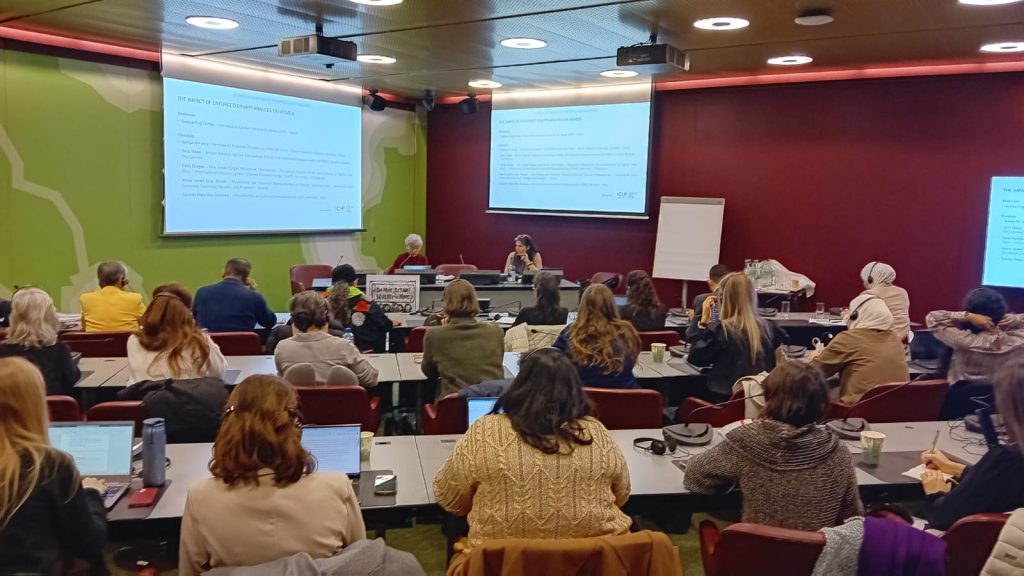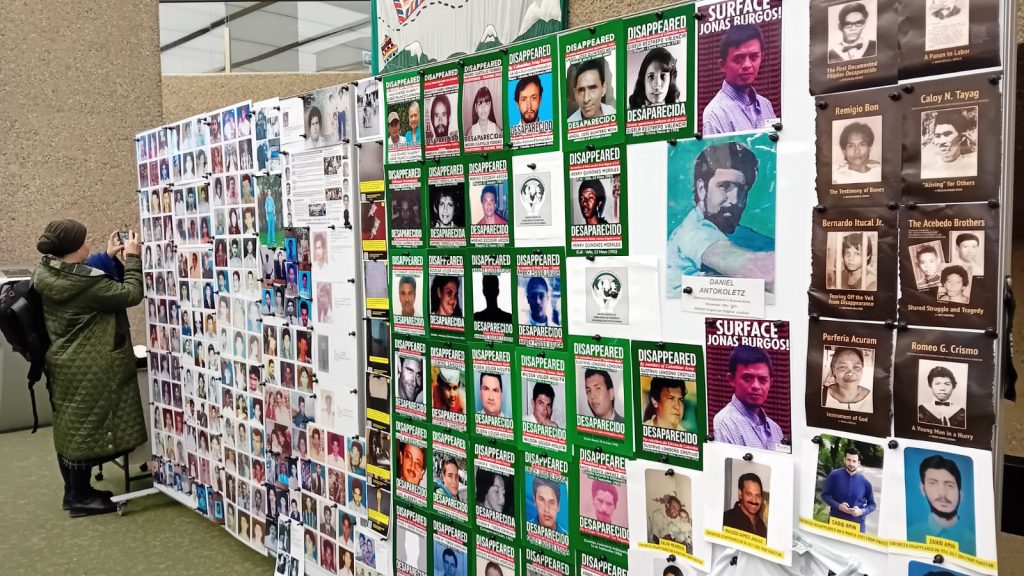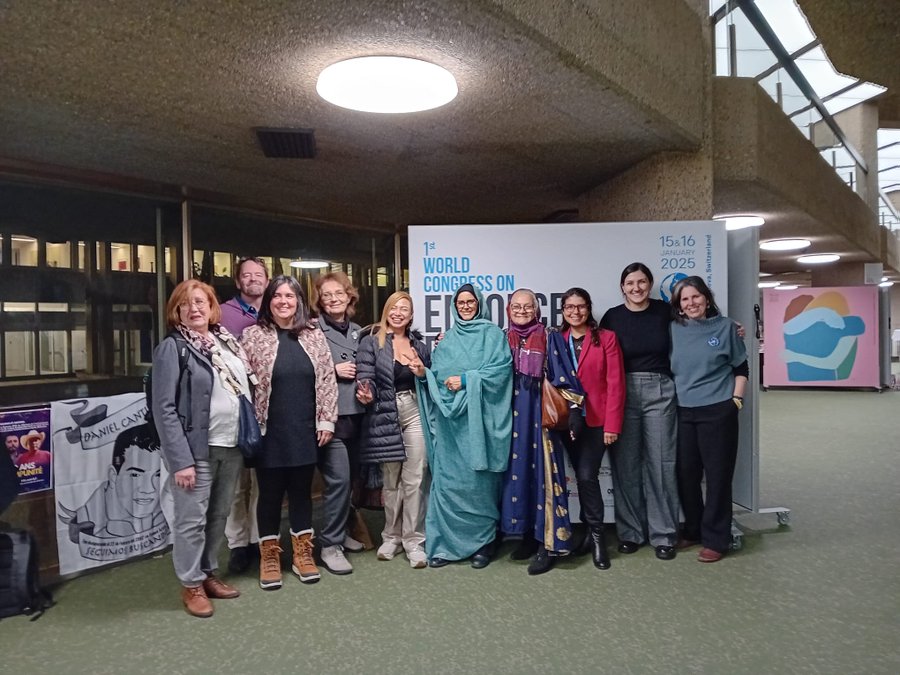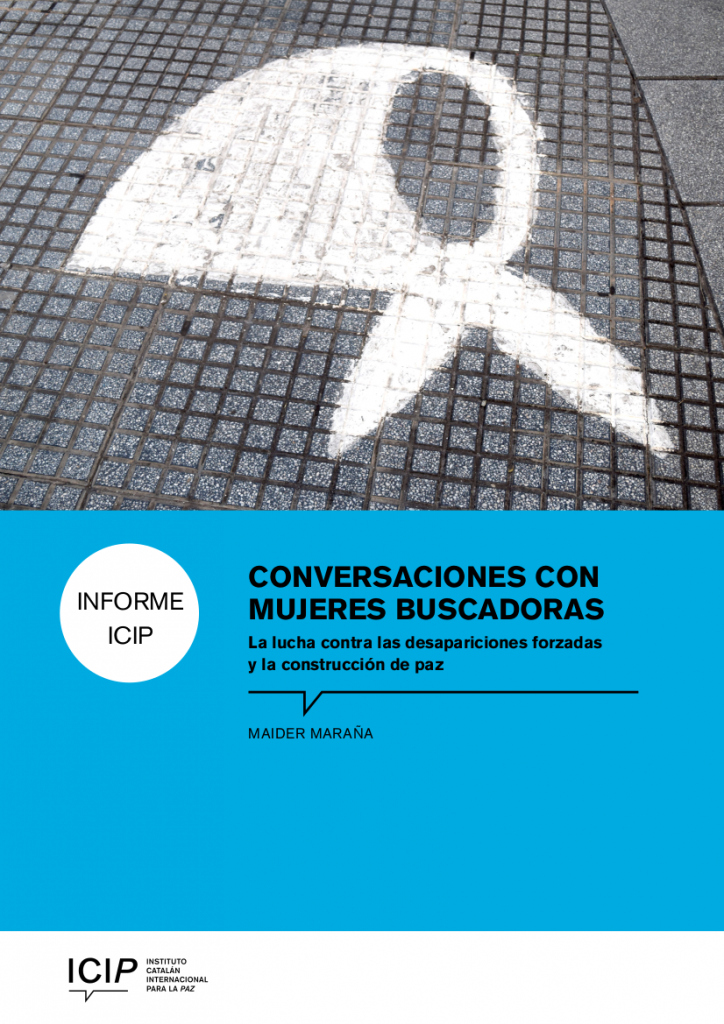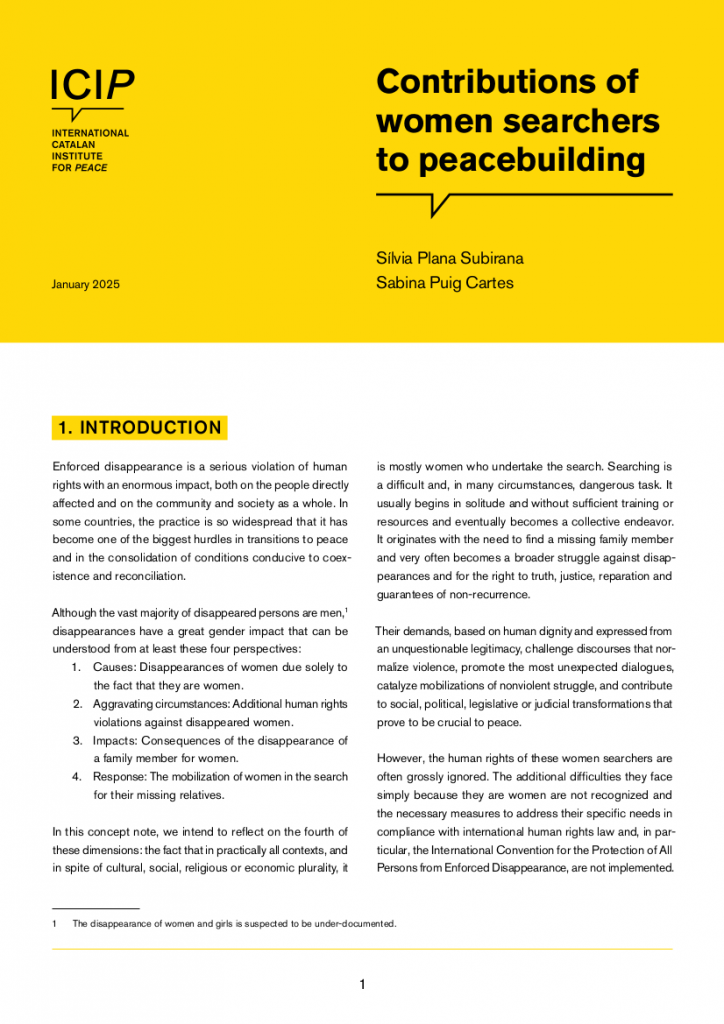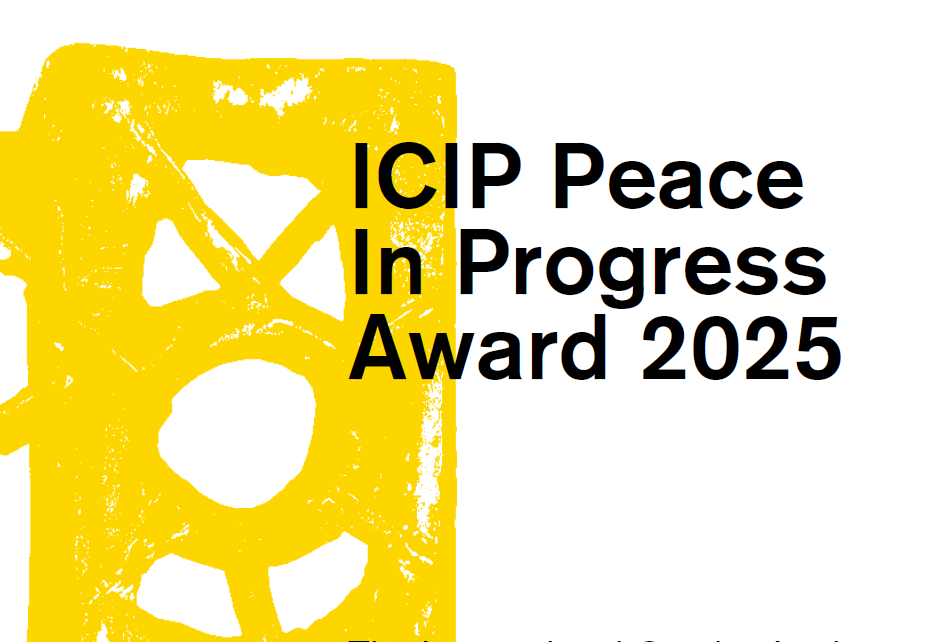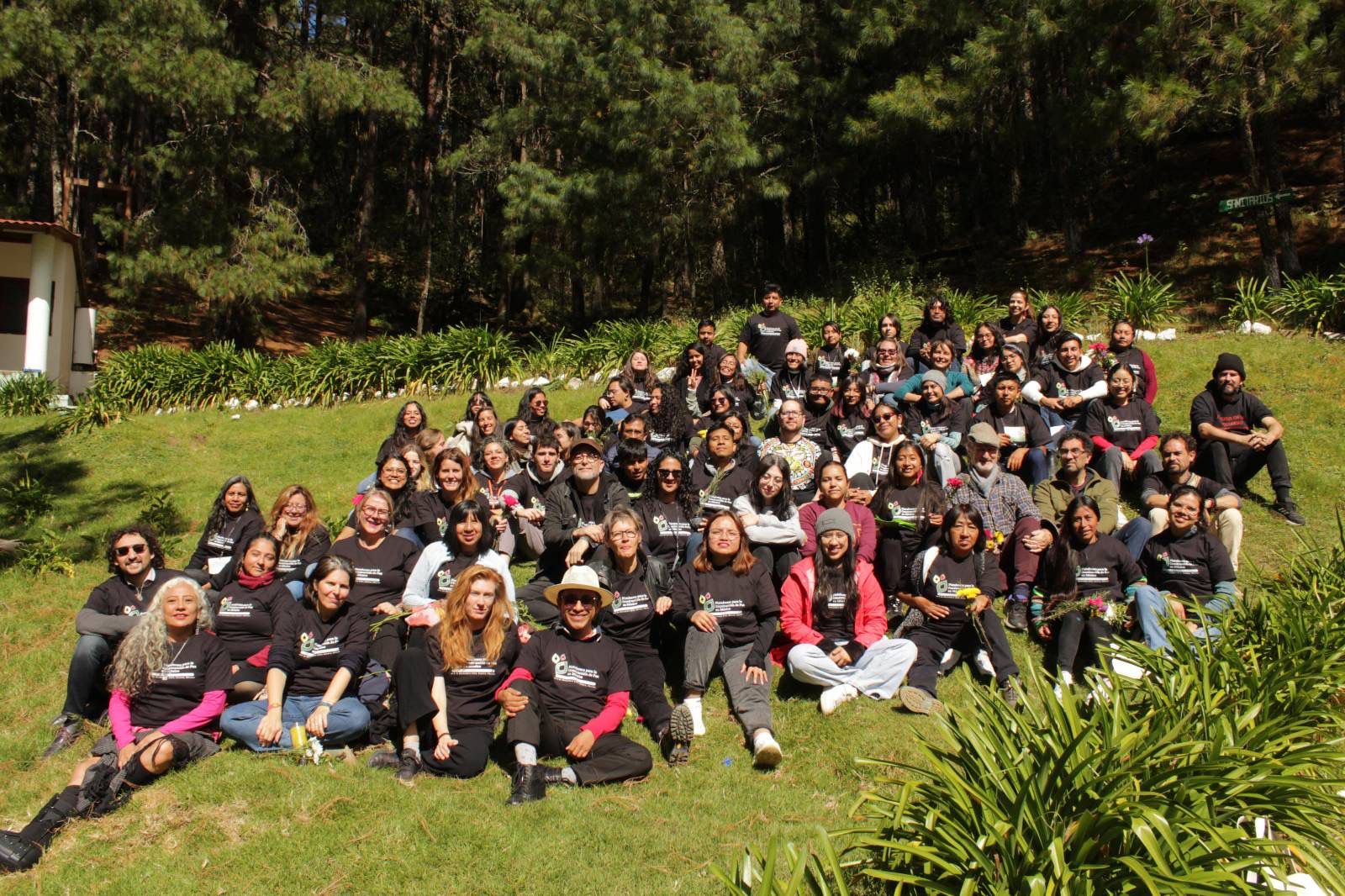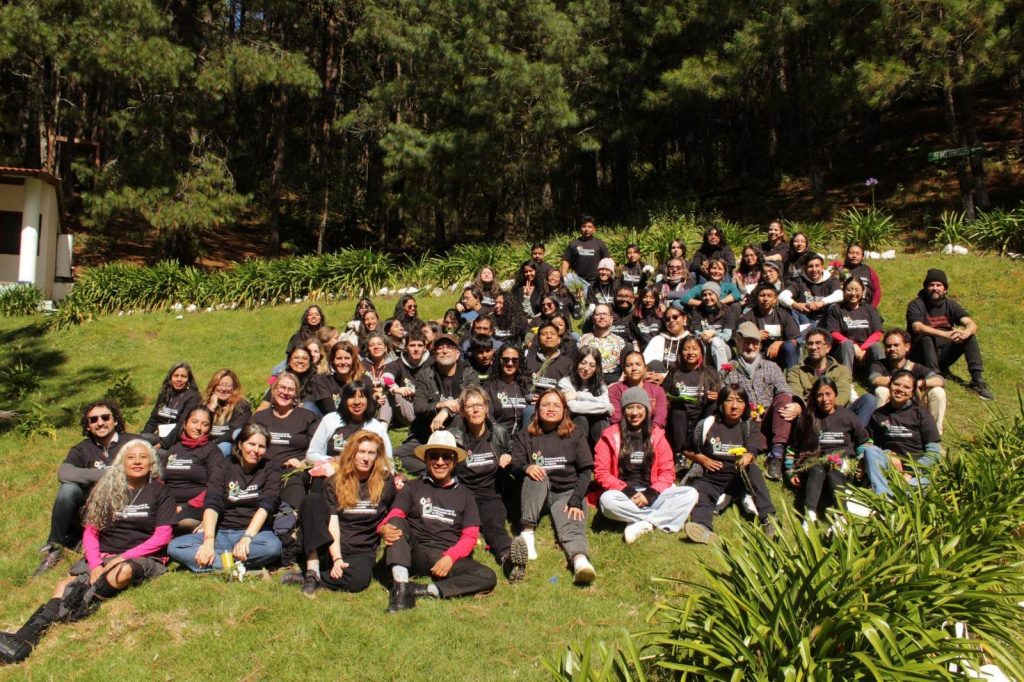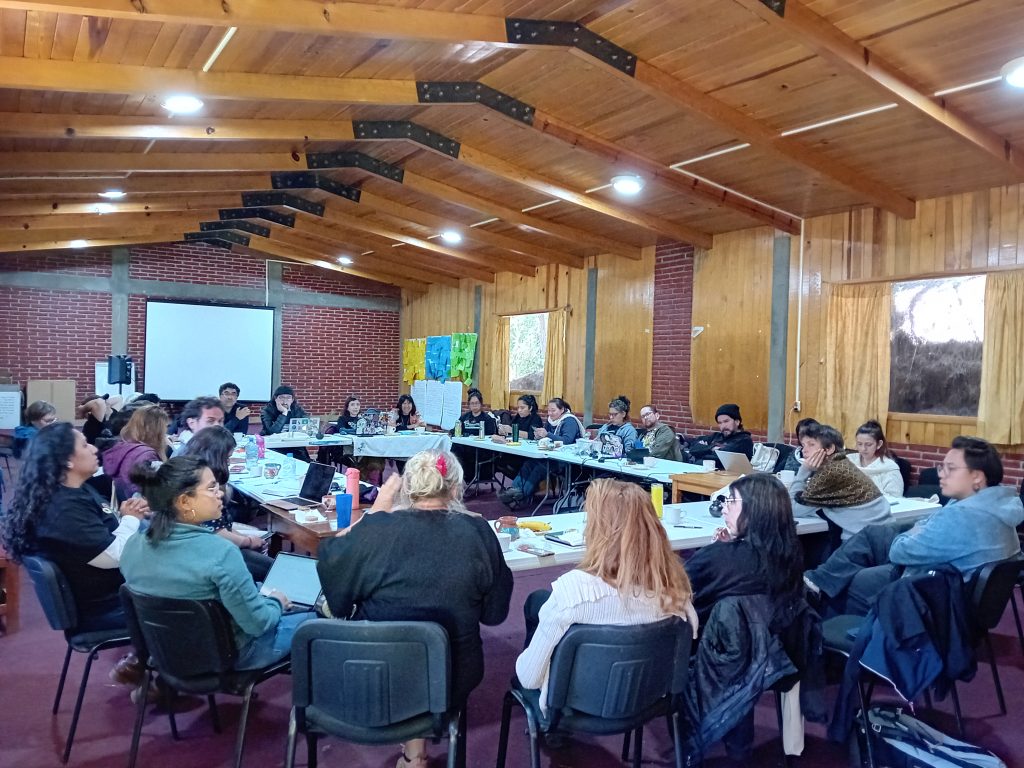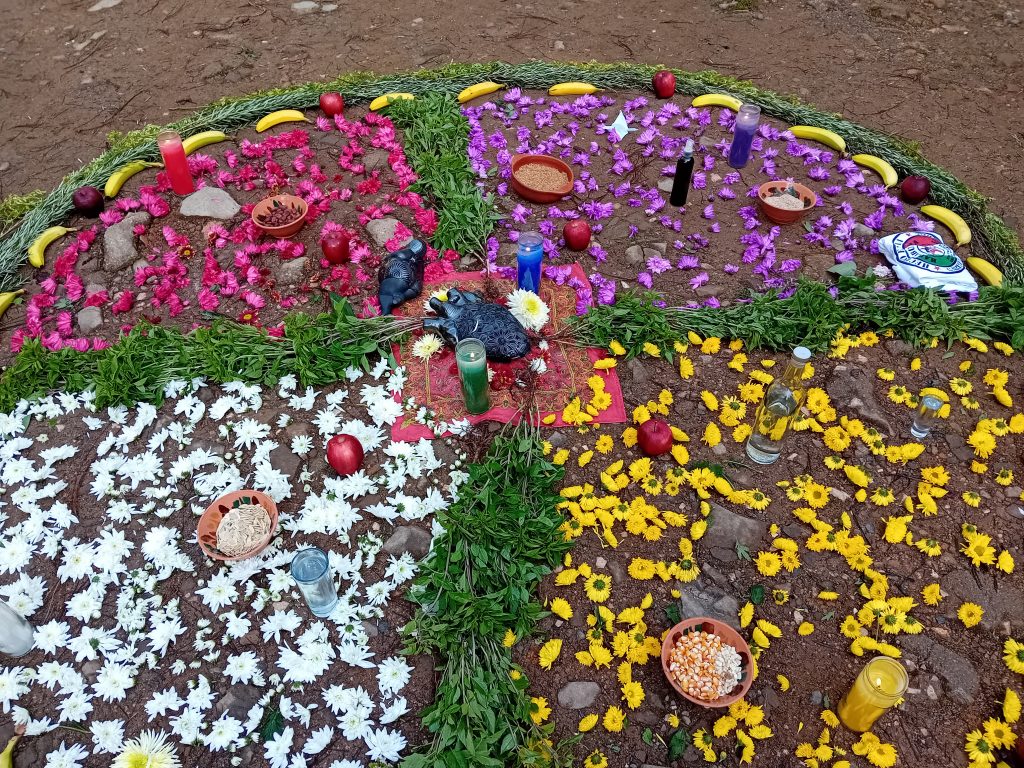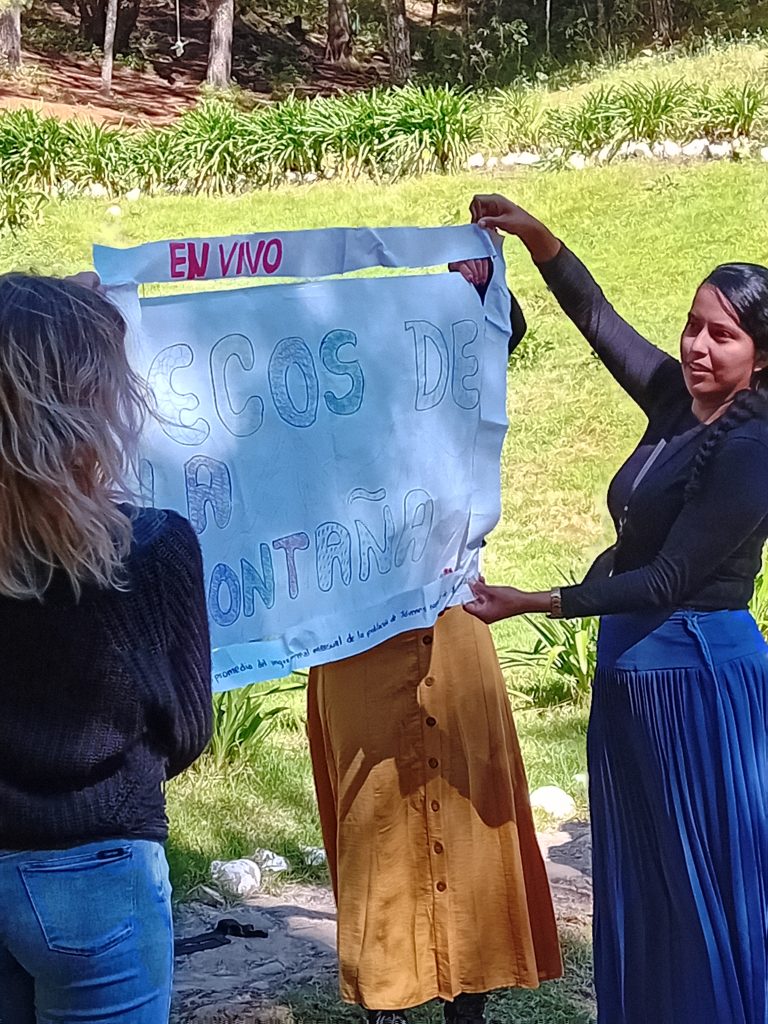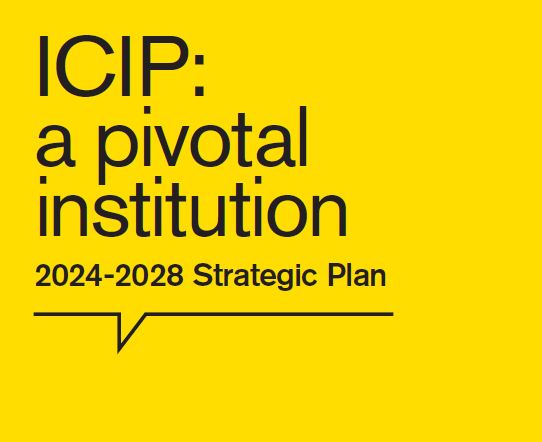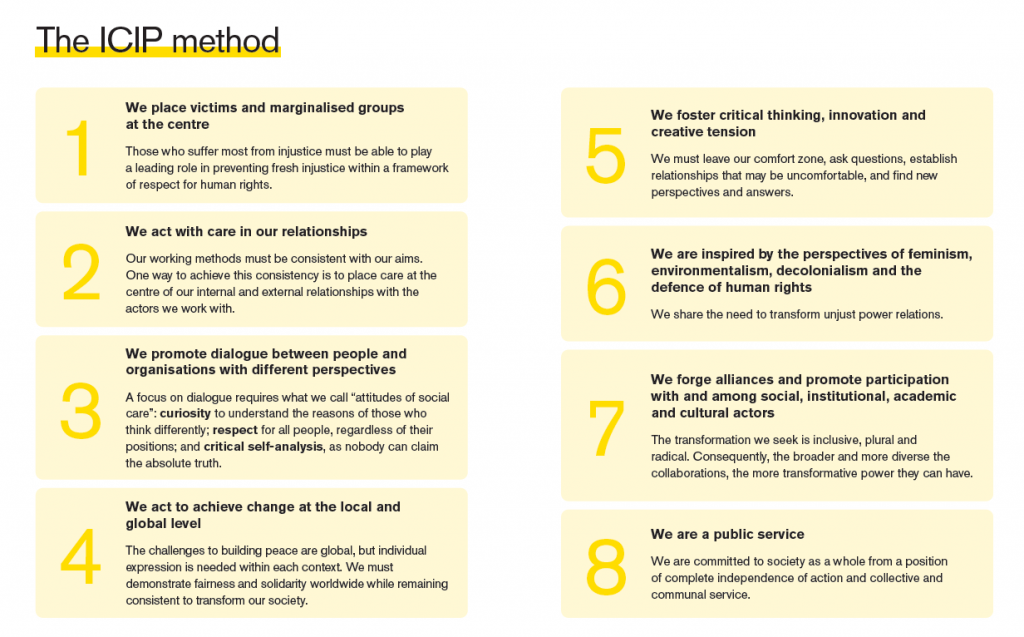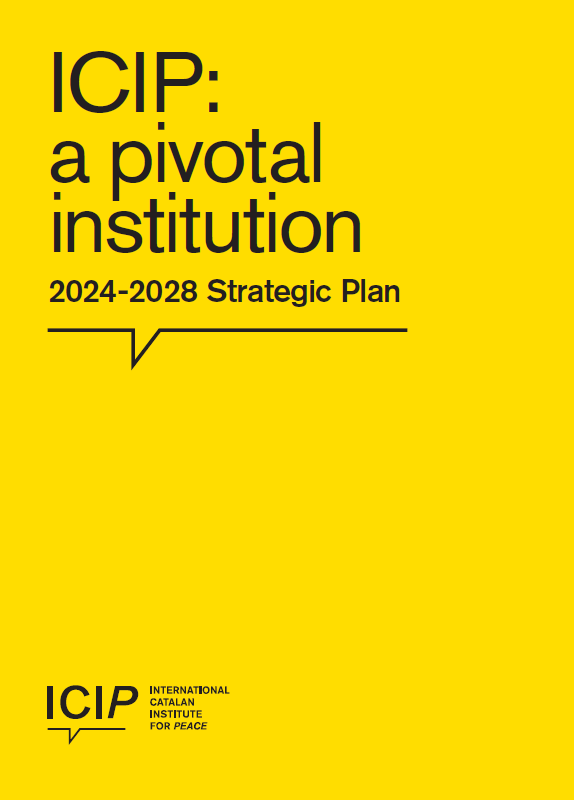Fourteen years after the outbreak of the popular uprising, Syria remains engulfed in a deep political, social, and humanitarian crisis. Yet, amidst the ruins of the conflict, a resilient civil society continues to nurture the desire for change. This was the central theme at the session “Syria, 14 Years Later: Resistance, Hope and Perspectives for Peace“, organized by the ICIP. It featured Syrian activist and historian Nour Salameh and journalist Oriol Andrés Gallart, moderated by professor and Arab world expert Lurdes Vidal.
The event, held on April 8 at the Hub Social in Barcelona, offered a reflection on the country’s current situation following the fall of the Assad regime last December and the massacres committed last March.
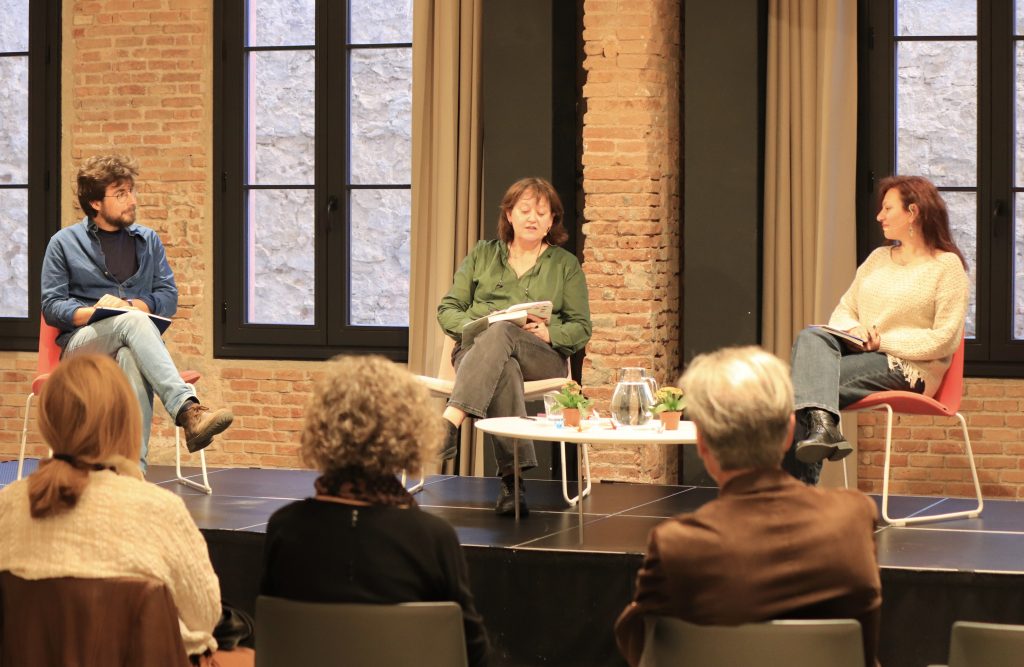
A Civil Society That Endures, Despite Everything
Despite years of repression, war, and exile, Salameh argued that Syrian civil society has never stopped fighting and has not only survived but has also transformed and diversified, primarily through the diaspora. “What remains of this civil society—of those who have fought for fourteen years against dictatorship and justice—is a lot, and it has even multiplied,” she stated. According to Salameh, various initiatives have emerged to preserve the memory of the victims, support the families of the disappeared, and promote women’s empowerment.
While material reconstruction is one of the country’s significant challenges today, so is the rebuilding of its social fabric. “The main challenge for civil society today is to create spaces for dialogue among the different factions in the country,” she noted. This task is made difficult by territorial and social divisions, the result of decades of sectarian policies and the open wounds of the conflict.
Both Salameh and Andrés agreed on the diagnosis of a fragmented country. Cities like Homs are telling examples: entire neighborhoods destroyed by the regime’s repression, while others aligned with the regime remain untouched. There are also tensions between Syrians who fled the country and those who stayed behind.
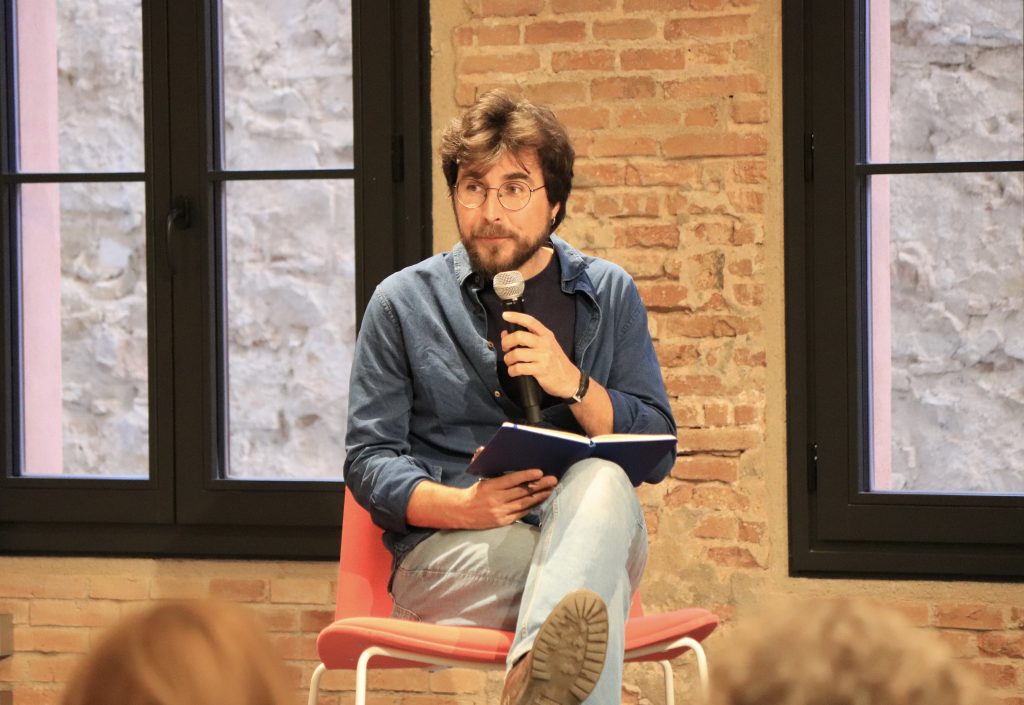
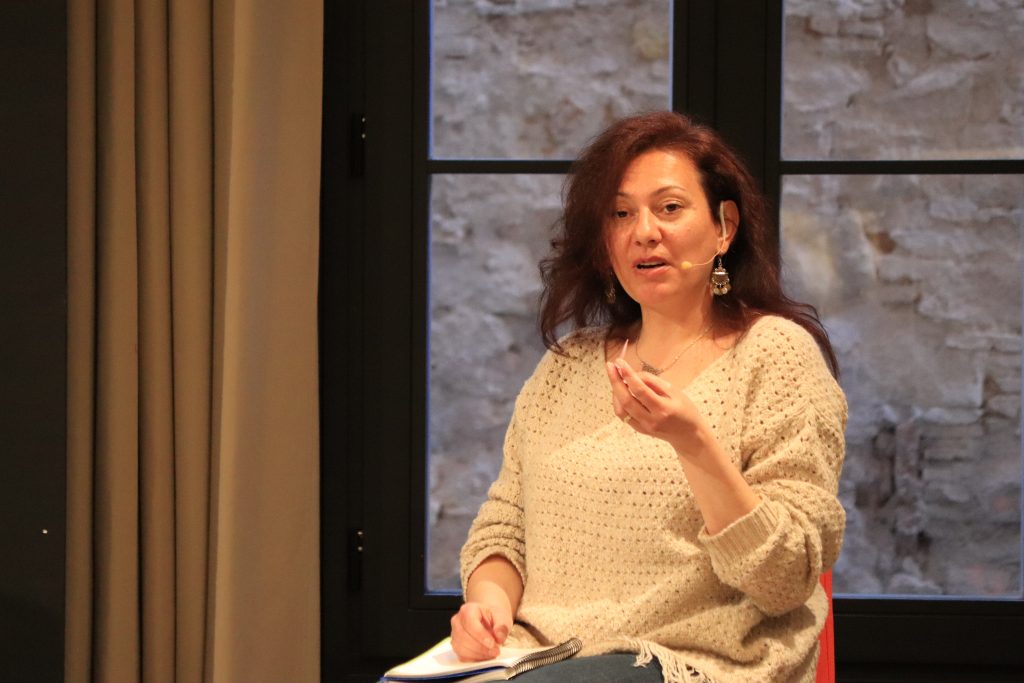
Justice, Memory, and the Fight Against Impunity
According to the speakers, achieving justice for victims remains a pending issue in Syria. The existence of organizations that document disappearances and denounce war crimes reflects a strong commitment to memory, but also exposes the limits of this struggle. Andrés highlighted how widespread victimization and the lack of a shared narrative make reconciliation difficult. “There is a competition to see who is more of a victim,” he warned.
Despite official declarations, little progress has been made in investigating crimes committed by the Assad regime, and individuals implicated in serious human rights violations have even been appointed to public positions. Without a true transitional justice process, breaking the cycle of impunity is extremely difficult.
The event concluded with a shared message of confidence in Syrian civil society: “The people will not allow another authoritarian regime and will continue to fight as they have for the past 14 years,” Salameh and Andrés agreed. And a final note of hope: “Despite everything, there is a civil society, there are capable and motivated people working to build a new Syria. We must support them and trust in their efforts,” Vidal emphasized.
The event also featured a reading—both in Arabic and Catalan—of the poem “I Shall Not Cry” by Palestinian poet Fadwa Tuqan, performed by Noor Ogly and FundiPau president Carme Suñé. The poem served as a symbolic bridge between the experiences of the Syrian and Palestinian peoples, connecting two realities shaped by struggle and resilience.
Watch the recording of the event below (in Catalan).

